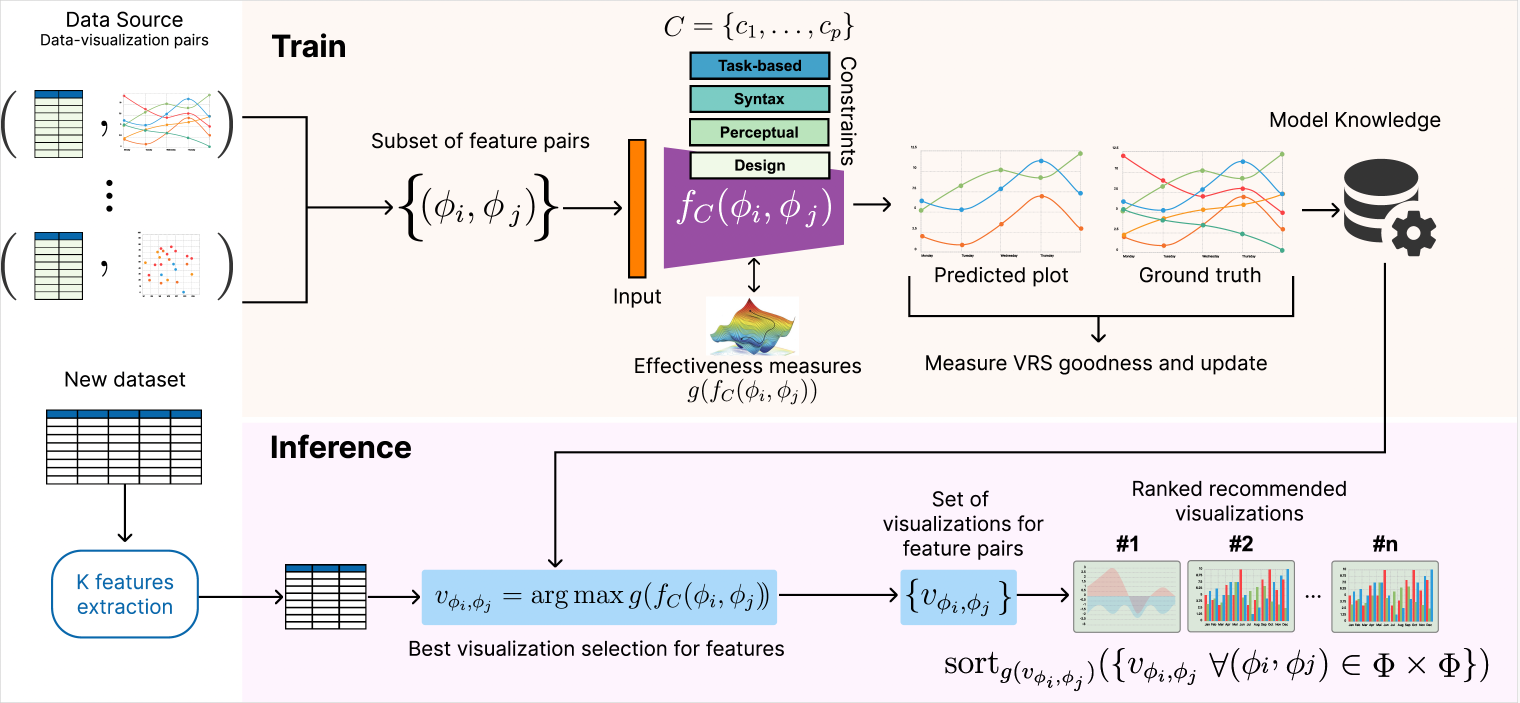Agnostic Visual Recommendation Systems: Open Challenges and Future Directions
Luca Podo -
Bardh Prenkaj -
Paola Velardi -
DOI: 10.1109/TVCG.2024.3374571
Room: Bayshore II
2024-10-17T13:06:00ZGMT-0600Change your timezone on the schedule page
2024-10-17T13:06:00Z

Fast forward
Full Video
Abstract
Visualization Recommendation Systems (VRSs) are a novel and challenging field of study aiming to help generate insightful visualizations from data and support non-expert users in information discovery. Among the many contributions proposed in this area, some systems embrace the ambitious objective of imitating human analysts to identify relevant relationships in data and make appropriate design choices to represent these relationships with insightful charts. We denote these systems as "agnostic" VRSs since they do not rely on human-provided constraints and rules but try to learn the task autonomously. Despite the high application potential of agnostic VRSs, their progress is hindered by several obstacles, including the absence of standardized datasets to train recommendation algorithms, the difficulty of learning design rules, and defining quantitative criteria for evaluating the perceptual effectiveness of generated plots. This paper summarizes the literature on agnostic VRSs and outlines promising future research directions.